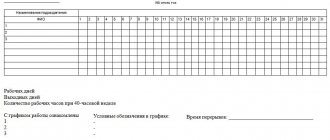One of the rights of a defendant in civil proceedings is the opportunity to refuse judicial consideration of the case by filing an application for recognition of the claim.
Filing an application for recognition of a claim means full recognition of the claim by the defendant. If such recognition does not contradict the law and does not violate someone’s rights, the court makes a decision on the claims made by the plaintiff. In this case, the court does not examine the evidence presented and does not listen to the parties’ explanations on the merits of the stated claim. Admission of the claim may be made by the defendant at any stage of the legal process.
You can apply to the court for recognition of a claim in a civil case by the defendant, taking into account the latest changes in current legislation, at the very bottom of the page.
Such a statement means that the defendant agrees with the plaintiff’s arguments and is ready to satisfy his demands in full. It will not be particularly difficult to prepare an application for recognition of a claim on your own. If the prospect of consideration of the dispute is clearly not in favor of the defendant, recognition of the claim at the early stages of the case (for example, after the court has accepted the claim for proceedings) will save money, for example, on paying for the services of a representative. This also applies to cases where the plaintiff demands a penalty, since their volume at the date of consideration by the court can be increased by the plaintiff by clarifying the amount of the claim.
Acknowledgment of the claim by the defendant
From the moment the statement of claim is accepted, the defendant has the right to agree to the demands presented. The procedural action can be carried out directly by the party to the case or by its representative. In case of protecting your rights through a representative, you must draw up a power of attorney, which stipulates the right to full or partial acceptance of claims. The Code of Administrative Proceedings establishes the recognition of a claim, the Arbitration Procedure Code of the Russian Federation and the Code of Civil Procedure of the Russian Federation also contain a similar procedure, which is identical. The procedure is enshrined in Part 1 of Art. 39 Code of Civil Procedure of the Russian Federation, Part 3, Art. 49 Arbitration Procedure Code of the Russian Federation, Part 3, Art. 46 CAS RF.
How to file a claim for property inheritance?
A claim for inheritance of a land plot, house, apartment or other property is drawn up taking into account the requirements of the Code of Civil Procedure of the Russian Federation and must contain the following information:
- information about the court in which the claim is filed
- information about the plaintiff, i.e. his full name, residential address, date of birth, telephone number
- information about the defendant, i.e. Full name (name), residential address (location), TIN for a legal entity, date and place of birth, place of work, one of the identifiers specified in Art. 131 Code of Civil Procedure of the Russian Federation (SNILS, INN, etc.). If the plaintiff does not know any information about the defendant, it is better to indicate this in the claim
- state duty amount
- title of the document – statement of claim
- the text of the claim sets out all the circumstances of the case relating to the stated claims. There must also be a legal argument.
- the pleading part of the claim sets out specific demands that the plaintiff asks to satisfy
- the list of attachments lists all documents (copies) that are attached to the claim in support of the plaintiff’s arguments
- at the end the claim must be signed by the plaintiff or his representative
USEFUL : order a claim from our lawyer, and also watch a video on the topic
Consequences and order
Agreeing with the statement of claim has legal consequences in the form of a court decision to satisfy the claims. At the time of filing the relevant demand, the court is obliged to explain to the applicant the consequences for a full understanding of the inevitability of the actions taken.
A party to the case must understand that he agrees with the claims, and not with the acceptance of individual facts revealed during the consideration of the case. In practice, these two concepts are often confused. The main difference is that the consequences of admitting claims represent the final stage of the legal process in which the court will make a decision, while the acceptance of individual facts will mean agreement only with certain points and is not the basis for a decision to satisfy the claim. The procedural action in question is performed only at the trial stage.
This is important to know: Consequences of refusing a claim in arbitration proceedings under the Arbitration Procedure Code of the Russian Federation
At the trial stage, the concept of “claim for recognition” is often mistakenly used. The existence of such a document is impossible; this statement is based on the legal nature of both documents. The claim, in contrast to the statement of agreement with the claim, is of an initial nature.
Consequences for the defendant
A person who has expressed his consent orally or in writing is obliged:
- voluntarily fulfill all the requirements stated in the statement of claim;
- unconditionally comply with the decision of the judicial authority;
- refuse to challenge the court decision in the future.
Important! The above circumstances come into force after the completion of the trial and are subject to mandatory execution.
If the defendant or his representative cannot provide reasonable arguments indicating innocence, then refusal gives the opportunity to:
- soften the court's verdict;
- receive a real delay in the execution of the decision if it is of a material nature;
- suspend or completely terminate legal proceedings and enter into a settlement agreement for the parties.
If, for example, a claim is being considered against an individual entrepreneur or is related to issues of violation of tax laws, then agreement with the requirements may entail not only administrative, but also criminal liability. In this situation, the defendant needs to carefully weigh all the plaintiff’s arguments. If they are justified and subject to satisfaction by the court, then if you disagree with the statement of claim, more serious sanctions may follow.
Order of direction and form
The ways to perform a procedural action are:
- Providing a separate document.
- By indicating on the minutes of the meeting.
The most common is the first method. The party to the process draws up a separate document in which he sets out his position on consent and indicates that he understands the consequences of the procedural act being performed. A party to the process may use a written or electronic form of appeal; the court is obliged to accept the application. The document includes the following components:
- name of the court and case number;
- names of the parties;
- introductory part indicating the subject of the dispute;
- an indication of the rules of law on which the application is based;
- recording that the defendant’s actions do not violate the rights of third parties and the consequences of refusal are clear;
- the final part, which summarizes full or partial agreement with the claim;
- signature with transcript and date.
The form of submission is written or electronic, for example through the official website of the Arbitration Court of St. Petersburg and the Leningrad Region. At the legislative level, there is no established pattern for the defendant to acknowledge a claim, so there are no strict regulations in the preparation of this document.
Registration procedure
The law does not contain clear requirements on how a confession is recorded. But there are rules for drawing up protocols of court hearings and a certain judicial practice has been developed.
• Partial recognition of claims can be made orally. In this case, the statement of the defendant or a third party is entered into the minutes of the court session. The person who accepted the claims puts his signature and date on this entry.
• It is possible that this procedural action may be formalized in writing. The defendant, on his own behalf, draws up a statement and addresses it to the judge hearing the case. The document details must contain information about the participants in the case (name, surnames, addresses, procedural status) and a request for partial recognition of the claim.
The application is written in advance and presented at the court hearing or submitted in advance to the court office or by mail.
• It is necessary to indicate in what part the requirements are recognized. For example, the amount of the claim is 80,000 rubles, and the defendant agrees to pay 50,000 rubles. This means that he admitted the claims partially, in the amount of 50,000 rubles.
A representative of a party is also allowed to agree with part of the claims if the power of attorney provides for the appropriate powers.
Challenging consent to a claim
The procedural action in question is also subject to appeal. When the defendant makes a corresponding application, the judicial authority considers the recognition of the claims by the defendant for negative impact on third parties. If there were violations of the procedural order, the other party has the right to appeal the decision made on the basis of the defendant’s application. Failure to explain the consequences of the defendant’s consent may be a procedural violation if this is also not indicated in the application. Therefore, courts pay increased attention to the preparation of such a document. A sample application for recognition of the claim by the defendant can be printed in the courthouse on public computers. The consent form can be recorded audiotape or in writing.
If the court makes a ruling refusing to recognize the claim, then such a document can only be appealed together with the final court decision. This provision is established by Part 4 of Art. 173 Civil Code of the Russian Federation. The procedure applies regardless of what form of recognition of the claim was used. A private complaint against a determination cannot be filed.
About the concept
The defendant may plead the claim throughout the trial, either in writing or orally. A statement of recognition of claims is an expression of the will of the defendant, the main purpose of which is to end the dispute with the plaintiff . A statement of agreement with the demands put forward by the opposing party, expressed in writing or orally, occurs under the supervision of the court.
Dear readers! The article talks about typical ways to resolve legal issues, but each case is individual. If you want to find out how to solve your particular problem , contact a consultant:
+7 (Saint Petersburg)
APPLICATIONS AND CALLS ARE ACCEPTED 24/7 and 7 days a week.
It's fast and FREE !
An undisputed admission is the full agreement of the responding party with the facts stated in the claim document. Recognition by content is:
- Full.
- Partial.
- Simple. A simple confession is the consent of the defendant to all points of the charges.
- Qualified. Such recognition implies the presence of reservations challenging the indisputability of the claims made.
Read more: How to quickly get a secondary medical education
The defendant's agreement with the circumstances of the case does not mean recognition of the claim. Thus, the defendant may admit participation in the transaction, but disagree with the amount of debt required by the plaintiff. Also, when drawing up an agreement, it is necessary to distinguish between the recognition of a claim and the conclusion of a settlement transaction , which is definitely unilateral in nature.
Acknowledgment of a claim is a separate procedural action, therefore, when a representative of the defendant participates in the process, the possibility of recognition is stipulated and included in the power of attorney.
Application for recognition of the claim
A sample application to the court for recognition by the defendant of a claim in a civil case, taking into account the latest changes in current legislation. Filing an application for recognition of a claim means full recognition of the claim by the defendant. If such recognition does not contradict the law and does not violate someone’s rights, the court makes a decision on the claims made by the plaintiff. In this case, the court does not examine the evidence presented and does not listen to the parties’ explanations on the merits of the stated claim. Admission of the claim may be made by the defendant at any stage of the legal process.
In _________________________ (name of court) Defendant: ___________________ (full name, address)
Claim for recognition of lack of debt as a method of defense
Civil Case No. 33-7223 APPEAL DECISION
On February 20, 2021, the Judicial Collegium for Civil Cases of the Moscow City Court, composed of presiding judge Gornova M.V. judges Vishnyakova N.E., Tselishcheva A.A. under secretary Naumenko D.N. after hearing in open court the report of judge M.V. Gornova. case on the appeal of Barycheva SV against the decision of the Nikulinsky District Court of Moscow dated September 13, 2017, taking into account the additional decision dated October 23, 2021, which decided: To recover from Govorovo Management Company LLC in favor of Barycheva S compensation for moral damages in the amount 5000 rubles, fine of 2500 rubles. To recover from Govorovo Management Company LLC in favor of Barycheva S B the costs of paying for the services of a representative in the amount of 15,000 rubles. The rest of the demands are to be refused, ESTABLISHED:
Byrycheva S.V. filed a lawsuit against Govorovo Management Company LLC to recognize the contract as terminated and the debt as non-existent, citing the fact that on November 14, 2015, an agreement was concluded between the plaintiff and the defendant for the provision of services for organizing access to an apartment building. Since the plaintiff lost interest in the services provided for in this agreement, and the decision of the general meeting of owners of the apartment building on the conclusion of this agreement, as well as on the provision of services provided for in the agreement to residents for a fee, was never made, the plaintiff refused security services, sending the defendant a corresponding notice of refusal from the contract. This notice was received by the defendant on January 30, 2016. However, the defendant does not consider the security agreement to have terminated and continues to charge the plaintiff fees for services under the agreement for the provision of services for organizing access to an apartment building. In addition, the defendant made charges to the plaintiff for electricity consumed in public areas in the absence of an energy supply agreement concluded by the Management Company with the resource supplying organization. Based on the above, taking into account the updated statement of claim, the plaintiff asked the court to recognize the contract for the provision of services for organizing access to an apartment building dated November 14, 2015, concluded between the plaintiff and the defendant, terminated on January 30, 2016, and to recognize as non-existent the plaintiff’s debt to the defendant under the service agreement organization of access in an apartment building dated November 14, 2015 in the amount of 10,200 rubles, accrued by the defendant for the period from June 2016 to May 2021 and until the date of the decision in the case, oblige the defendant to exclude utility bills for the apartment from receipts for the plaintiff’s payment, located at the address:, debt and accruals under the agreement for the provision of services for organizing access to an apartment building dated November 14, 2015, recognize as absent the plaintiff’s debt to the defendant under the apartment building management agreement dated November 14, 2015 for the power supply of common areas for March 2021 in the amount 942 rub. and exclude the specified debt from payment receipts, declare void clause 7.3 of the agreement for the provision of services for organizing access to an apartment building dated November 14, 2015, concluded between the plaintiff and the defendant, declare void clause 8.3 of the agreement for the provision of services for organizing access to an apartment building dated 14.11.2015 year concluded between the plaintiff and the defendant, in the part establishing the transfer of disputes related to the specified agreement to the court at the location of the defendant, invalidate clause 8.1 of the apartment building management agreement dated November 14, 2015, concluded between the plaintiff and the defendant, in part establishing that disputes under this agreement are resolved in court at the location of the apartment building at the request of one of the parties, to recover from the defendant in favor of the plaintiff compensation for moral damage in the amount of 30,000 rubles, a fine in the amount of 20,571 rubles. 00 kopecks, legal expenses for drawing up a power of attorney in the amount of 1,400 rubles, expenses for paying for the services of a representative in the amount of 40,000 rubles. The plaintiff's representative appeared at the court hearing, supported the specified claims in full and asked to satisfy them. The representative of the defendant appeared at the court hearing, asked to satisfy the claims on the grounds set out in written objections, and also asked to apply the statute of limitations. The court made the above decision, taking into account the additional decision, the cancellation of which the plaintiff requests based on the arguments of the appeal. Having checked the materials of the case, the representative of the plaintiff by proxy Shikunov E.S., the representative of the defendant by proxy Suntsov S.I., having discussed the arguments of the appeal, the judicial panel finds no grounds for canceling the appealed decision, made in accordance with the actual circumstances of the case and the requirements of the current legislation . According to paragraph 1 of Art. 782 of the Civil Code of the Russian Federation, the customer has the right to refuse to fulfill a contract for the provision of services for a fee, subject to payment to the contractor for the expenses actually incurred by him. In accordance with paragraph 1 of Art. 450.1 of the Civil Code of the Russian Federation, the right granted by this Code, other laws, other legal acts or an agreement to unilaterally refuse the agreement (execution of the agreement) (Article 310) can be exercised by the authorized party by notifying the other party of the refusal of the agreement (execution of the agreement). The contract is terminated upon receipt of this notification, unless otherwise provided by this Code, other laws, other legal acts or the contract. According to Art. 421 of the Civil Code of the Russian Federation, citizens and legal entities are free to enter into an agreement. Compulsion to enter into an agreement is not permitted, except in cases where the obligation to enter into an agreement is provided for by this Code, the law or a voluntarily accepted obligation. As established by the court of first instance and confirmed by the case materials, the plaintiff is the owner of apartment No. 309, located at the address: Moscow, st. Tatyanin Park, 16, bldg. 1. LLC “UK Govorovo” is the managing organization of the apartment building in which the plaintiff’s apartment is located, based on the results of an open competition to select a management organization to conclude an agreement for the management of apartment buildings, which is confirmed by Protocol No. 3 of September 25, 2015. On November 14, 2015, an agreement for the management of an apartment building No. 40161309 was concluded between the plaintiff and the defendant. Also on November 14, 2015, an agreement No. 40161309\ОХ was concluded between the plaintiff and the defendant for the provision of services for organizing access to an apartment building, according to which the defendant assumed obligations to provision of services for organizing access to an apartment building at the address: Moscow, Moskovsky village, st. Tatyanin Park, 16, building 1, and the plaintiff promptly and within the time limits established in the contract to pay remuneration for the fulfillment of the obligations provided for in this contract. From the explanations of the defendant, it follows that the execution of this agreement was provided by the security organization LLC "CHOP SYMBOL SB". According to clause 6.1 of this agreement, the agreement comes into force from the date of its signing by the parties and is valid for three years. The agreement is automatically renewed for the next three years on the same terms, unless either party provides the other party with written notice of its intention not to renew the agreement thirty calendar days before the expiration date of the agreement. Based on clause 7.3 of the agreement, this agreement terminates if, in accordance with the Housing Code of the Russian Federation, a decision is made by the general meeting of owners to refuse services for organizing access to an apartment building, but not earlier than 30 days from the date of notification in writing by the owners of the Management organization on the decision made by the general meeting of owners. From the explanations of the representative of the plaintiff, it follows that the plaintiff lost interest in the services provided for in this agreement, and the decision of the general meeting of owners of the apartment building on the conclusion of this agreement, as well as on the provision of services provided for in the agreement to residents for a fee, was never made, and therefore, the plaintiff refused security services, sending the defendant a corresponding notice of refusal of the contract. This notification was received by the defendant on January 30, 2016, which is confirmed by the case materials. Meanwhile, the decision of the general meeting of owners to refuse services for organizing access to the apartment building was not sent to the defendant. Refusing to satisfy the claims of Barycheva S.V. on the recognition of agreement No. 40161309\ОХ for the provision of services for organizing access to an apartment building, terminated on January 30, 2016, the court of first instance proceeded from the fact that the plaintiff signed an agreement containing a condition for its termination, while no other decisions were made at the meetings of owners , the security service was actually performed. Since the court refused to satisfy the demands to recognize contract No. 40161309\ОХ as terminated on January 30, 2016, the court’s conclusion that it refused to satisfy the plaintiff’s demands to recognize the plaintiff’s missing debt to the defendant under the contract for the provision of access services in an apartment building dated November 14, 2016 is also correct. 2015 in the amount of 10,200 rubles, accrued by the defendant for the period from June 2021 to May 2021 and until the date of the decision in the case, the defendant’s obligation to exclude from receipts for the plaintiff’s payment of utility bills for an apartment located at the address: Moscow, village Moskovsky, st. Tatyanin Park, 16, building 1, apt. 309, debt and accruals under the contract for the provision of services for organizing access to an apartment building dated November 14, 2015, since the defendant provided the services provided for in the contract, while the plaintiff provided no evidence to the contrary, in turn, the plaintiff received payment documents and arbitrarily excluded services for protection Further, the court found that, according to the terms of the apartment building management agreement concluded between the parties, the Management Company undertakes to provide the plaintiff, among other things, with utility services for electricity supply. On April 27, 2016, between Mosenergosbyt PJSC and Management Company Govorovo LLC, an energy supply agreement was concluded with the utility service provider No. 87841015. At the same time, from a copy of the receipt for payment of utility services, it follows that for March 2021 the plaintiff was charged for the consumed electricity in public areas in the amount of 942 rubles. From the explanations of the defendant in the court hearing, it follows that due to the fact that erroneous data was used to calculate the consumed resource, the payment document for March 2021 is subject to adjustment. At the moment, data on charges for electricity for general house needs for an apartment building located at the address: Moscow, Moskovsky village, st. Tatyanin Park, 16, bldg. 1, for the period March 2021, the defendant checked and recalculated. Refusing to satisfy the plaintiff’s demands for recognition of the missing debt for electricity supply to public areas for March 2021 in the amount of 942 rubles. and excluding the specified debt from payment receipts, the court proceeded from the fact that the defendant voluntarily satisfied the requirements in this part. Resolving the dispute regarding the plaintiff’s demands to invalidate clause 8.3 of the agreement for the provision of services for organizing access to an apartment building dated November 14, 2015, concluded between the plaintiff and the defendant, in the part establishing the transfer of disputes related to the specified agreement to the court at the location of the defendant , as well as on the recognition as void of clause 8.1 of the management agreement for an apartment building dated November 14, 2015, concluded between the plaintiff and the defendant, in the part establishing that disputes under this agreement are resolved in court at the location of the apartment building at the request of one of the parties, the court The first instance proceeded from the fact that the plaintiff did not provide evidence of violation of the requirements of the law or other legal act when concluding either an agreement for the provision of services for organizing access to an apartment building dated November 14, 2015, or an agreement for the management of an apartment building dated November 14, 2015. The plaintiff signed both agreements, the plaintiff did not raise any objections during the conclusion, as well as during their execution, there was no evidence that she did not agree with any clauses and conditions of the agreement when concluding the agreements, and had the intention to make changes to the agreement, the plaintiff was not presented. Satisfying the plaintiff’s demands for compensation for moral damage, the court of first instance proceeded from the fact that the requirements regarding the exclusion of the plaintiff’s debt for power supply to public places for March 2021 were voluntarily satisfied by the defendant after filing the claim, and therefore, the court reasonably came to the conclusion that recovery of compensation for moral damage in the amount of 5,000 rubles. The panel of judges finds this compensation commensurate with the moral suffering caused to the plaintiff, reasonable and fair. Guided by the provisions of paragraph 6 of Art. 13 of the Law of the Russian Federation “On the Protection of Consumer Rights” dated 02/07/1992 No. 2300-1, paragraph 46 of the Resolution of the Plenum of the Armed Forces of the Russian Federation dated 06/28/2012 No. 17 “On the consideration by courts of civil cases on the protection of consumer rights”, the court is also correct collected a fine from the defendant in the amount of 2,500 rubles. The costs of paying for the services of a representative were recovered by the court in accordance with the provisions of Art. 98, 100 of the Civil Procedure Code of the Russian Federation, taking into account the principle of reasonableness and fairness in the amount of 15,000 rubles. The argument of the appeal is that, by virtue of Art. 782 of the Civil Code of the Russian Federation and Art. 32 of the Law of the Russian Federation “On the Protection of Consumer Rights”, the plaintiff had the right to refuse the contract for the provision of services for organizing access to an apartment building, is untenable, since these rules regulate the relations that arose between the parties and do not affect the interests of third parties, and the consumer refuses the services, which are provided in relation to property owned by him personally. Meanwhile, as follows from agreement No. 40161309\ОХ dated November 14, 2015, it regulates the relations of the parties regarding the protection of an apartment building, the owner of which the plaintiff is not; she owns only one apartment. This agreement does not provide for the protection of only her apartment, and this agreement affects the interests of other owners of the house, with whom corresponding agreements were also concluded. Under such circumstances, the provisions of the agreement that it is subject to termination by decision of the general meeting of home owners do not violate the requirements of the law. The reference in the appeal to the ruling of the Supreme Court of the Russian Federation dated May 24, 2016 No. 4-KG16-9 Megapolis LLC is untenable, since the dispute considered by the courts concerned the relations that arose between an individual and a legal entity on the issue of refusal to execute a purchase agreement real estate object - land plot; These relations do not affect other persons. The argument of the appeal that the terms of the contract for the provision of services for organizing access to an apartment building dated November 14, 2015 and the management contract for an apartment building dated November 14, 2015, which determine the jurisdiction of the disputes, are void, and therefore the court incorrectly applied the statute of limitations, cannot serve as a basis for canceling the decision, since the refusal of the claim was justified by the court not only because the statute of limitations had passed. At the same time, from the case materials it is clear that these terms of the contracts did not violate the plaintiff’s rights. The statement of claim was accepted for court proceedings, despite these conditions, at the place of residence of the plaintiff as a consumer in accordance with Art. 29 Code of Civil Procedure of the Russian Federation. The argument of the appeal that the court unreasonably refused to collect a fine from the unreasonably accrued amount of debt for consumed electricity in the amount of 942 rubles is untenable, since by virtue of clause 6 of Art. 13 of the Law of the Russian Federation “On the Protection of Consumer Rights” a fine of fifty percent of the amount awarded by the court in favor of the consumer is subject to collection for failure to voluntarily comply with these requirements. Meanwhile, the specified amount was not recovered by the court. At the same time, the plaintiff did not make any demands to recover this amount from the defendant, and the defendant voluntarily did not pay the specified amount to the plaintiff, they recalculated. Other arguments in the appeal do not contain circumstances that require additional verification, were the subject of judicial review, were aimed at a different assessment of the evidence, and therefore cannot serve as a reason to cancel this decision. Under such circumstances, the court's decision on the plaintiff's claims is legal and justified; no grounds for its cancellation are seen.









